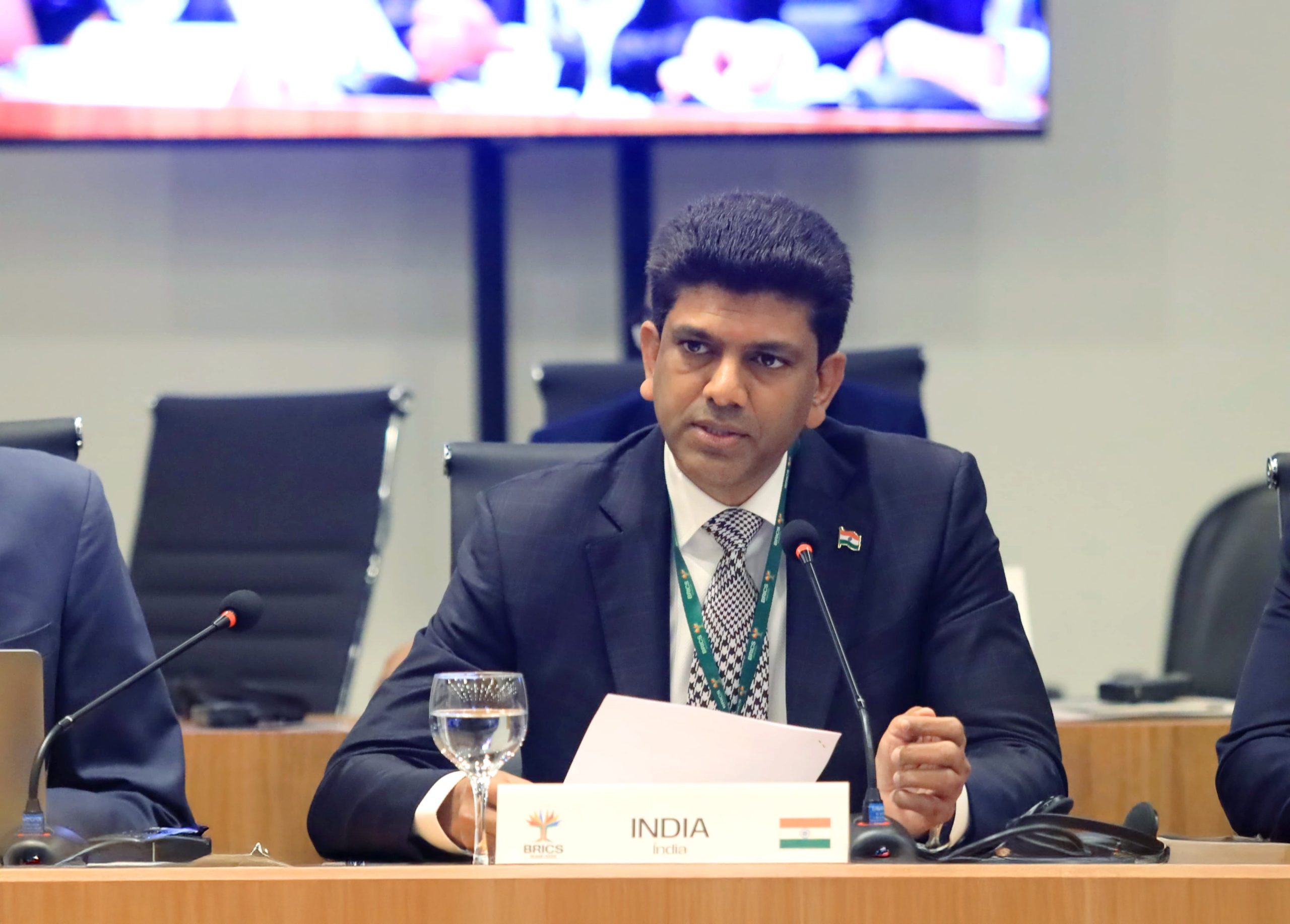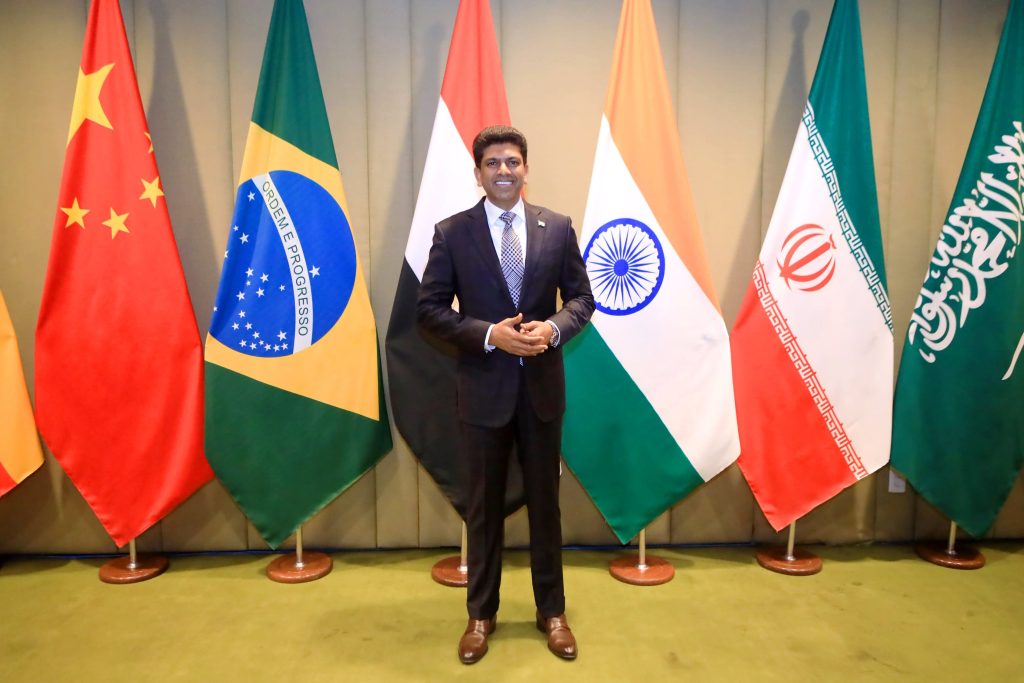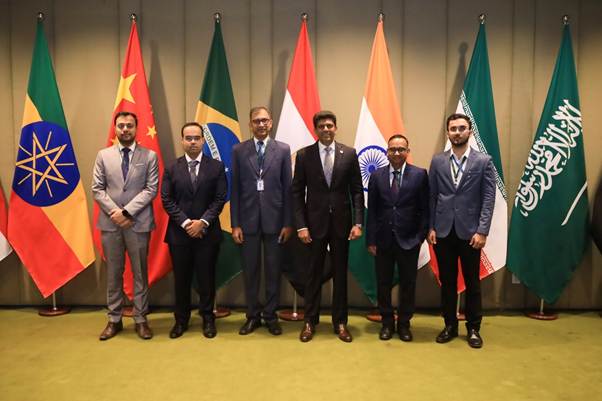India reaffirmed its commitment to inclusive, sustainable, and future-ready digital development at the 11th BRICS Communications Ministers’ Meeting held in Brasília, Brazil.
Delivering India’s national statement, Minister of State for Communications and Rural Development, Dr. Pemmasani Chandra Sekhar, highlighted the country’s progress in digital governance under the theme set by Brazil’s BRICS presidency—Universal and Meaningful Connectivity, Space Sustainability, Environmental Sustainability, and the Digital Ecosystem.
Dr. Chandra Sekhar showcased India’s Digital Public Infrastructure (DPI) as a global model for inclusive and transformative digital governance. He underlined the impact of flagship platforms such as Aadhaar and Unified Payments Interface (UPI), stating that Aadhaar has empowered over 950 million Indians with secure digital identity and seamless access to services, while UPI has revolutionised real-time digital payments, contributing to 46 percent of the world’s digital transactions.
He called upon BRICS nations to deepen collaboration and leverage digital public infrastructure for inclusive growth. “India’s DPI model, based on open and interoperable platforms, is a catalyst for good governance, financial inclusion and digital innovation while acting as a safeguard against monopolistic practices,” he added.
Dr. Sekhar also spoke about India’s vibrant startup ecosystem, the growing digital skills network, and progressive legislations such as the Telecommunications Act and the Data Protection Act. Stressing the need for digital trust and user safety, he highlighted India’s Sanchar Saathi initiative to combat telecom-related fraud.
The Minister emphasised the importance of international cooperation in areas such as cybersecurity, data protection and digital integrity, noting that the safety and trustworthiness of interconnected digital societies are crucial for the future.
Reflecting on India’s digital progress, Dr. Sekhar said the country has transitioned from digital divide to digital leadership. He presented the Digital Bharat Nidhi programme as a flagship initiative that has supported projects like BharatNet, which now connects over 2.18 lakh gram panchayats through optical fibre.
He said that India’s indigenous development and mass deployment of 4G and 5G technologies have brought high-speed connectivity to over 95 percent of the population with 4G and more than 80 percent with 5G. India, he noted, also leads the world in affordable data access, with internet data prices as low as 12 cents per gigabyte.
Speaking on the issue of space sustainability, the Minister said, “Space is no longer a distant frontier—it is now a vital part of our digital infrastructure.” He outlined India’s reforms in satellite communication, including streamlined SATCOM regulations and expanded licensing for mobile and IoT satellite services. He urged BRICS nations to work jointly on global issues such as orbital equity, spectrum management and space traffic regulation through cooperation rather than competition.
Addressing environmental sustainability, Dr. Sekhar acknowledged the dual challenges of climate change and rising e-waste. Citing projections from the Global E-Waste Monitor, he warned that global e-waste could reach 82 billion kilograms by 2030. He informed the forum about India’s initiatives like the Green Development Pact from the G20 Summit in Delhi and the Panchamrit goals announced at COP-26. He urged BRICS members to adopt circular economy practices, integrate green energy into ICT infrastructure and support global frameworks like the ITU’s Green Digital Action.
















